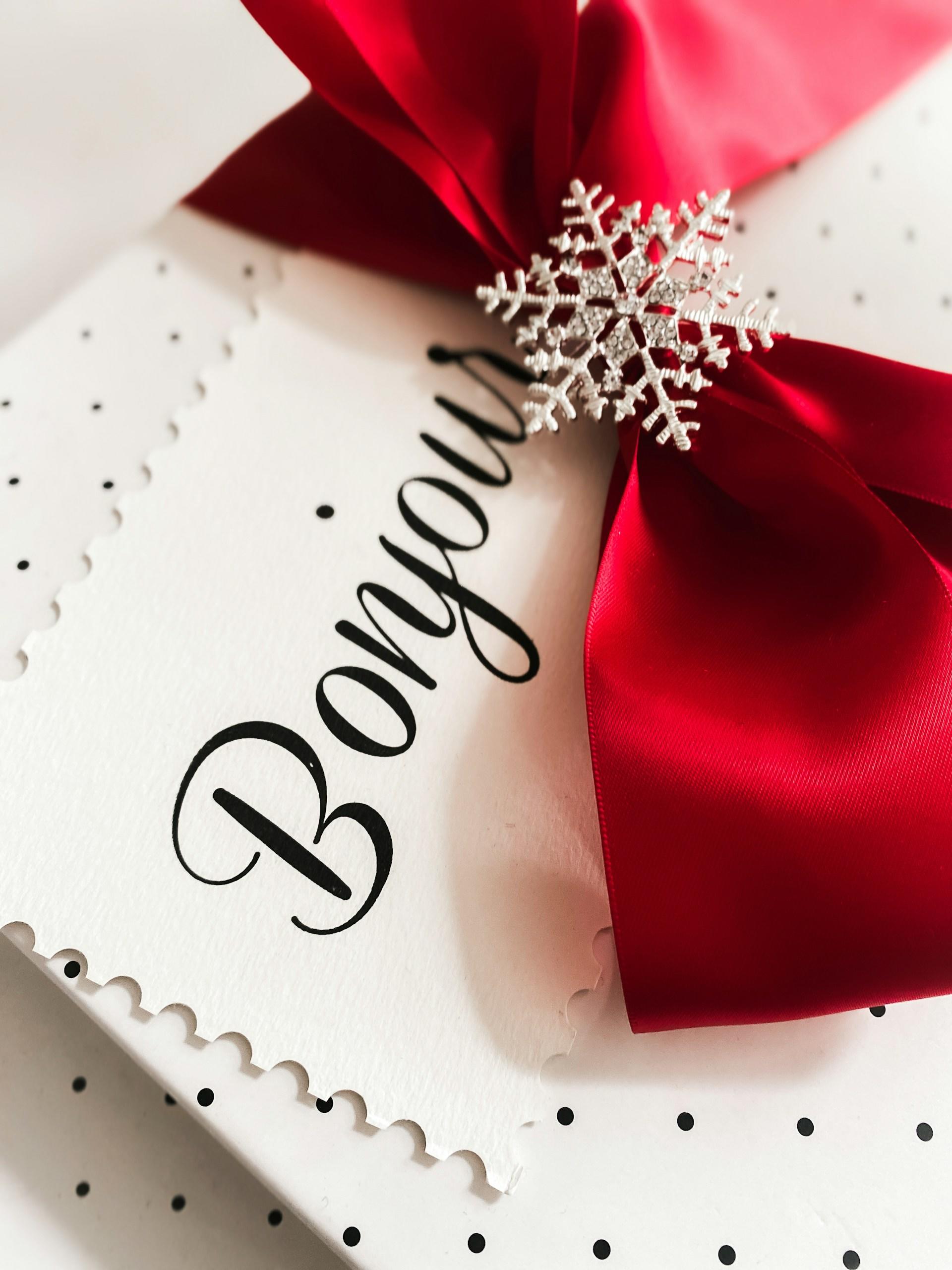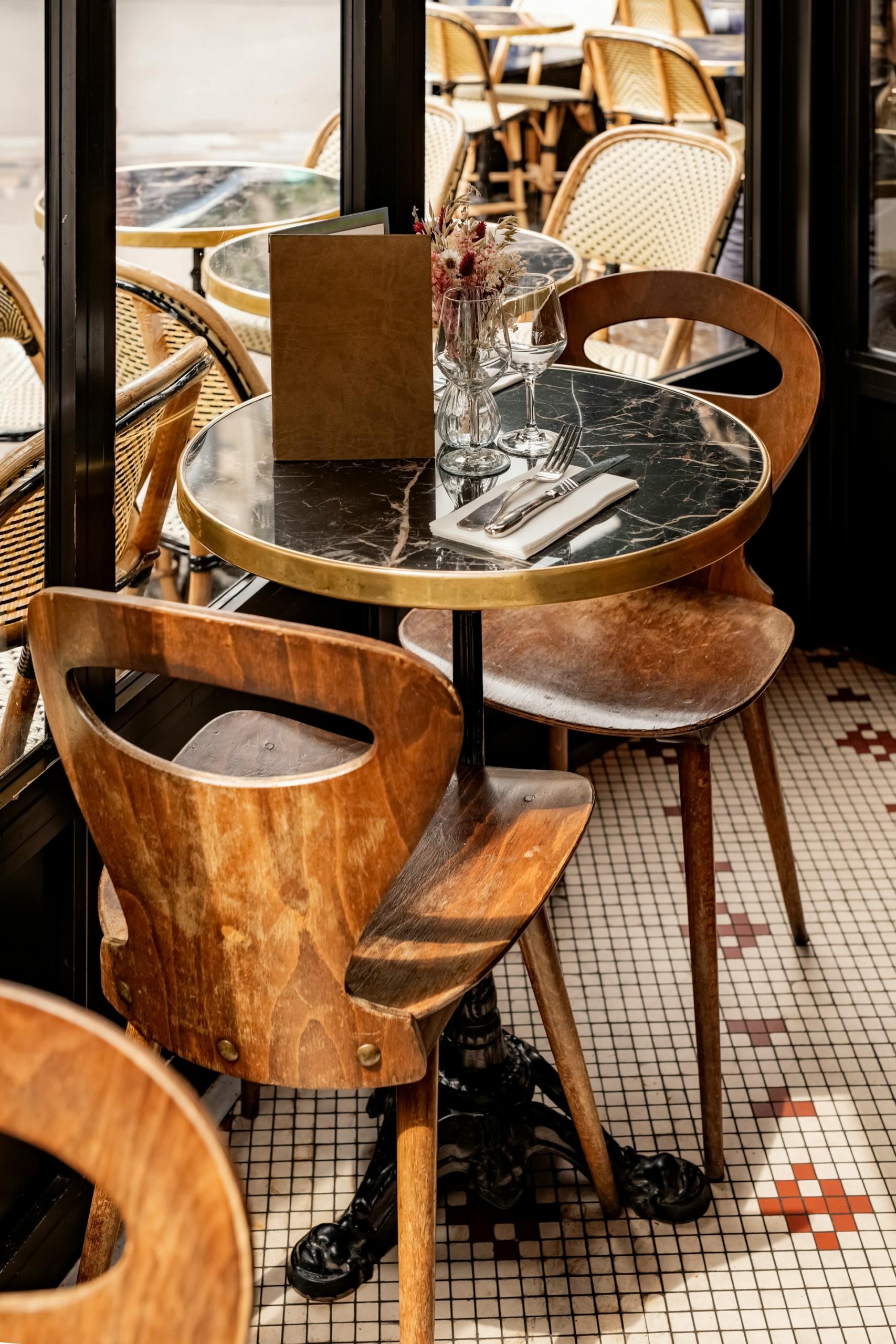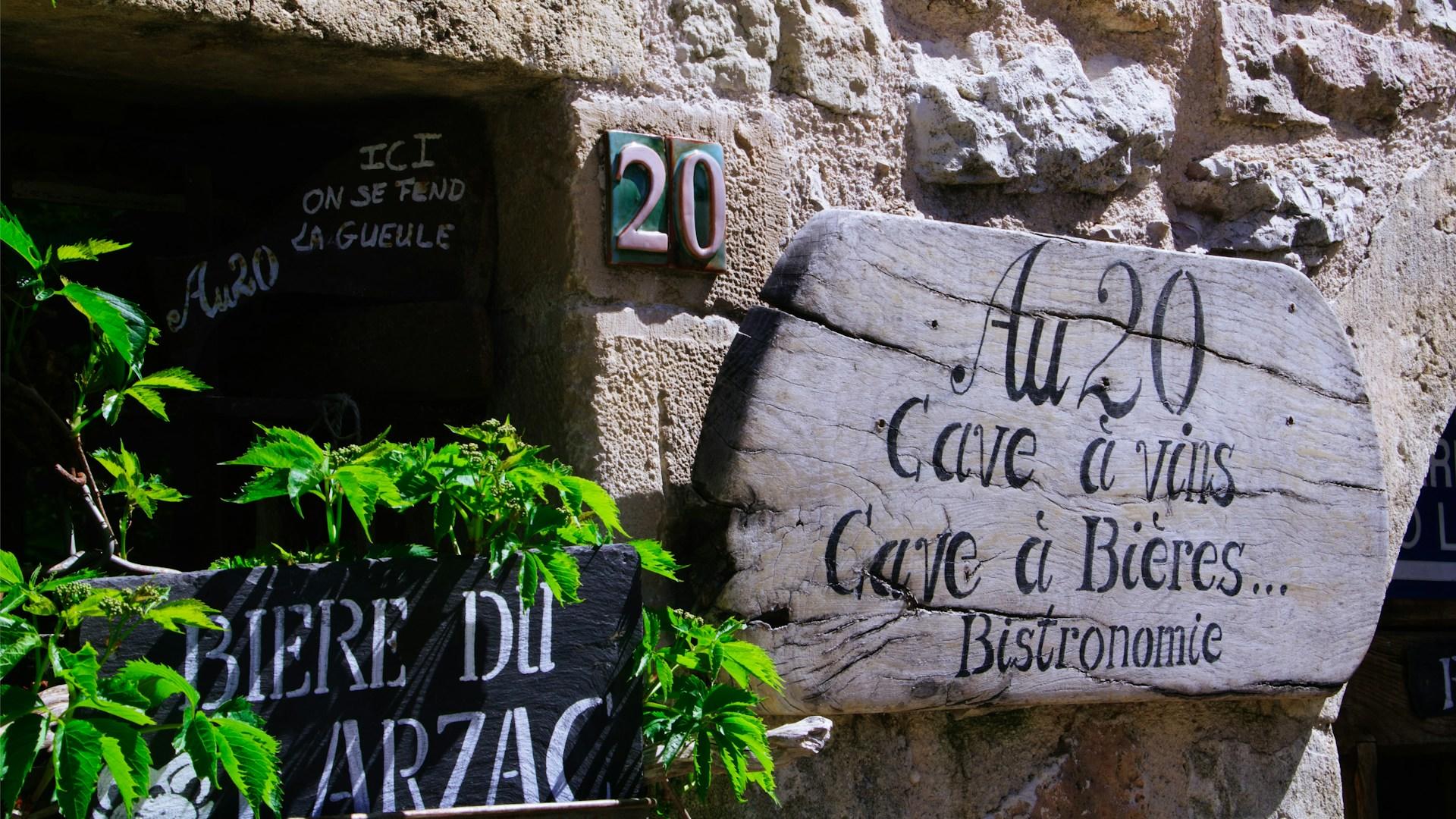Every man has two countries: his own and France.
John F. Kennedy, former US President
If President Kennedy was right, doesn't it then stand to reason that we should know our second country's language? To an extent, we do, considering that 27% of English words are - or come directly from French. However, we lack the pronunciation, the grammar, and the structure to use the French words we know in the French context.
Besides, do we even know which of our words are French and which ones come from other languages? From this article's perspective, the point is moot. We're set to learn all the French words and phrases every French traveling guide recommends, and then some. Those include language to:
- Order food and drink
- Ask for directions
- Navigate French shops, from bakeries to high-end stores
- Greet people and respond to them

Essential French Words

Let's presume you're a native English speaker with no French language studies behind you. We'd nevertheless wager you know the French words 'Bonjour' and 'Merci'. No need to pay up; it was a friendly wager. Still, it makes our point.
'Hello' and 'Thank you' are travelers' essential words, whether in France or elsewhere in the world. Using them signals that you respect your host country's culture its people.
Tourists behaving badly abroad seems to be all the rage, these days. It's such a pity that travelers forget they carry and reinforce how their host nation's citizens view their country and culture. These two courteous expressions are the bare minimum a traveler can learn to be a good ambassador for their own country.
Like citizens of other nations, the French are keen to welcome visitors. Even if these tourists only use those two words. However, you shouldn't limit yourself to just 'hello' and 'thank you' - though they're fine, for starters.
You must also know how to say 'please' (S'il vous plaît), and 'goodbye' (Au revoir). It wouldn't hurt to master 'You're welcome' (De rien) and 'Excuse me' (Excusez-moi), either. This table lists all the basic words and phrases to study as you plan your trip to Paris.
| French word (formal informal) | What it means | When / how to use it |
|---|---|---|
| Bonjour Bonsoir Salut | Hello Good evening What's up? | Anytime you meet someone After 6 PM Only with people younger than you |
| Comment-allez vous? Ça va? | How are you? What's up? | When you know the person slightly A 'bonjour' response only with younger people |
| Au revoir Salut | Goodbye See you | When leaving Only to younger people |
| S'il vous plait S'il te plait Merci | Please Thank you | Any time you ask for something Only with younger people All occasions |
| Je vous en prie Je t'en prie | You're welcome | Formal For youths |
| Excusez-moi Pardon | Excuse me | Addressing adults Addressing younger people |
| Parlez-vous anglais? Tu parles anglais? | Do you speak English? | Addressing adults Addressing younger people |
| Je ne comprends pas | I don't understand | Suitable for all |
| Pouvez-vous m'aider? Peux-tu m'aider? | Can you help me? | Addressing adults Addressing younger people |
| Qu'est-ce que c'est? | What is it? | Suitable for all |
| Je ne sais pas | I don't know | Suitable for all |
| Oui / non | Yes / no | Suitable for all |
| Enchanté(e) | Charmed | Formal occasions; after introductions |
| Peut-être | Maybe | Suitable for all |
| Le truc | The thing | Commonly used instead of more complex words |
A Word on the 'No English' Rumors
The French are inordinately proud of their language, and rightly so. French rugby player Sébastien Chabal underscored the point during a 2007 press conference. The interviewer asked if he may pose questions in English, to which Sébastien replied: "We are in France, we speak French". His refusal to accommodate the press led to substantial backlash.
But does that mean the rumors are true, that the French will only speak French - whether you can or not? This clip sheds light on the subject, and offers tips for successful communication with French people in English.
Greetings in French
Saying bonjour ahead of any interaction is the standard in France. You might be fine, limiting yourself that that single phrase. However, the best places to visit in France may compel you to move beyond that greeting.
For instance, if you decide to overnight in the Loire Valley, your hotelier might greet you with "Comment-allez vous?" instead of the phrase you know. It means 'How are you doing?'.
The rise of the homestay - Airbnb-like accommodations, gives travelers yet another opportunity to speak French. For instance, when you come down to breakfast, your host might ask Avez-vous bien dormi? - did you sleep well?
No matter the occasion, always start the interaction with 'bonjour' before you ask for anything, including directions and ordering in restaurants.
Saying Hello - Age Matters
Like many languages, the French tongue has degrees of formality. When greeting or talking with anyone roughly your age or older, you must always err on the formal side. However, people obviously younger than you will view you strangely if you address them formally.
Using the words and phrases you already learned, we make this side-by-side comparison. It outlines the difference between formal and informal speech.
Formal speech
- Bonjour / Au revoir
- S'il vous plaît
- Comment-allez vous?
- De rien
- Excusez-moi / Pardonnez-moi
Informal speech
- Salut
- S'il te plaît
- Ça va? (Comment vas-tu? is awkward!)
- Il n'y a pas de quoi
- Excuse-moi / Pardon (Pardonne-moi)
The Flipside of Greetings
Knowing how to greet someone in French is good; knowing how to take your leave politely is also vital. As noted in the table above, Au revoir is the standard farewell. However, if you're taking your leave from your homestay hostess, a cheery "À bientôt!" works better. It means 'See you soon!', a great phrase if you will, indeed, return for another night's hospitality.
What do you say to someone who apologizes for some small offence - maybe, stepping on your foot? The 'Pardonnez-moi!' will be sincere; your 'Mais pas du tout!' should be, too. It translates to 'But not at all!'; it's roughly the same as our 'no worries'.

Ordering Food in France
Whether you dine at the corner bistro near your hotel or sample street food, you must learn how to order. A food vendor likely wouldn't consider you rude for using informal speech.
Indeed, experiencing such an exchange is one of the best things to do in Paris. Rather than the automatic bonjour, pay attention to how other patrons address them before it's your turn to order.

French culture tends towards formality. Expect wait staff (and shopkeepers) to address you in the third person - "Et pour Monsieur/Madame?" (And for the Mister / Madam?).
Dining culture in France is an intricate dance. To master its steps, you must know how to make a reservation, order your dishes, and ask for the check. You might even go a bit further, asking if the dishes as allergen-free or suitable for vegetarians. This table teaches you the right French vocabulary for the art of dining in France.
| French Phrase | Meaning |
|---|---|
| Une table pour [deux, trois, quatre...], s'il vous plaît. | A table for [two, three, four...], please. |
| Je voudrais réserver une table pour ce soir. | I'd like to reserve a table for tonight. |
| La carte, s'il vous plaît | The menu, please. |
| Qu'est-ce que vous recommandez? | What do you recommend? |
| Quel est le plat du jour? Quel est la soupe du jour? | What's today's special? What's today's soup? |
| Je voudrais essayer... Je prends... | I'd like to try... (dish) I'll have... |
| Avez-vous des plats végétarien? | Do you have vegetarian dishes? |
| Avez-vous des plats sans gluten? | Do you have gluten-free options? |
| Je voudrais encore de l'eau (du vin, du pain...) s'il vous plaît | I would like more water (wine, bread...) |
| L'addition, s'il vous plaît | The bill, please. |
| Est le service inclut? | Is the service charge included? |
| Vous acceptez les cartes de crédit? | Do you accept payment cards? |
In cozier cafés and bistros, you may order with 'Je prends' (I'll have) rather than the more formal 'Je voudrais' (I would like). However, saying 'Je veux' - (I want) is rude beyond measure.
Asking for Directions in French

Finding the best places to visit in France is not hard. The whole country is well-served with efficient transportation. Signs abound to direct tourists to the most high-profile - and even quieter, attractions. And, should Paris be your destination, you could hardly get lost for all the signage.
Still, it happens that one might lose the occasional train or metro station. In such cases, it's handy to know how to ask passers-by to help you find your way.
Besides, you have another reason to learn words and phrases related to commuting and asking directions, even if you're not lost. For example, you might want to ask what time the train to another city leaves. Or if you can reserve you place. Maybe you need to know if there's an earlier or later train.
When navigating the Paris metro system, you need to know what time the stations close. And if you hire a taxi, you must direct the driver to your hotel or other destination. This chart outlines the most important phrases to remember for such occasions.
| French Phrase | Meaning |
|---|---|
| Où est la gare, s'il vous plaît? | Where's the train station, please? |
| Je voudrais un billet pour [destination], s'il vous plaît. Un billet pour [destination], s'il vous plaît. | I'd like a ticket to [destination], please. One ticket to [destination], please. |
| Je voudrais un billet aller-retour, s'il vous plaît. Un billet aller-retour, s'il vous plaît. | I would like a round-trip ticket, please. A round-trip ticket, please. |
| Ça coûte combien? | How much does it cost? |
| À quelle heure part le prochain train? | What time does the next train leave, please? |
| Est-ce que ce bus va à [l'aéroport]? Où est le bus pour [l'aéroport]? | Is this the bus to the airport? Where's the bus to the airport? |
| Excusez-moi, je cherche [destination]. | Excuse me, I'm looking for [destination]. |
| Est-ce que vous pouvez m'indiquer le chemin? Pourriez-vous m'indiquer le chemin? | Could you give me directions? |
| À quelle heure ferme le métro? | What time does the metro shut down? |
| Combien de temps cela prend-il pour aller à [destination]? | How much time does it take to get to [destination]? |
Shopping Vocabulary in France
You might not think French travel phrases will serve you well when shopping. On the contrary, you'll find many uses for the vocabulary you learned to buy transit tickets. These phrases work in negotiating food and other purchases, too.
Phrases like 'Combien ça coûte?' and 'Qu'est-ce que c'est?' work in many situations. Still, you must expand your lexicon just a bit to master the right phrases for shopping in France. This table shows you the most common ones, along with when and how to use them.

Granted, hypermarkets and high-end boutiques are not the top attractions in France. Still, you might find something in a shop or at a vendor's stall that you can't live without. That being the case, you need this basic vocabulary to complete your purchase. Study this exchange to see how involved such transactions can be:
| French phrase | Meaning |
|---|---|
| Je peux vous aider? Pourriez-vous m'aider? | May I help you? Could you help me? |
| Qu’est-ce que vous cherchez? Je cherche... | What are you looking for? I'm looking for... |
| Quelle pointure (faites-vous)? Quelle taille (faites-vous)? | What's your shoe size? What's your clothing size? |
| Bon marché Madame a fait le bon marché! | Inexpensive. Madame scored a bargain! |
| Un échantillon (gratuit). | A (free) sample |
| Payer en espèces Payer en liquide Payer avec une carte | To pay in cash To pay in cash To pay by card |
| La monnaie | The change |
| Le reçu | The receipt |
| Avez-vous cela en bleu? | Do you have this in blue? |
| Est-ce que je peux l'essayer? | May I try it on? |
Speaking French: Beyond Hello

If you're just asking for directions or buying something, you probably won't want to extend the conversation any further than needed.
But what if you're on a Paris day trip, and you happen upon someone you'd like to know better? These are the phrases to speak.
The most important one, of course, must be Parlez-vous Anglais? - 'Do you speak English?' In such situations, people typically converse in a mixture of languages. Some of yours, some of theirs, and maybe even a third and fourth one. Often, with talk-to-text translations thrown in for good measure.
Or, you could simply say Pardon, je ne comprends pas - 'I'm sorry, I don't understand'. On the other hand, if you have some vague idea of what the other is saying, you could ask them: Qu'est-ce que c'est? - 'What is that?'. We close out this article with a final table that illustrates different ways to keep the conversation going.
| French phrase (formal informal) | Meaning |
|---|---|
| D'où etes-vous? D'où etes-tu? Je suis originaire des États-Unis | Where are you from? I'm from the US. |
| Quel âge as tu? | How old are you? |
| Vous aimez bien les sport? Tu aimes bien les sports? | Do you like sports? |
| C'est votre première visite? C'est ta première fois visiter ici? | Is this your first time here? |
| Dites-moi de ton pays. Dis-moi de ton pays. | Tell me about your country. |
| Qu'est-ce que vous aimez bien faire? Qu'est-ce que tu aimes bien faire? | What do you like to do? |
| Vous faites quoi de travail? Tu fais quoi de travail? | What type of work do you do? |
| Vous aimez voyager aussi? Tu aimes voyager aussi? | Do you like to travel, too? |
| C'est un vrai plaisir to faitre votre connaissance. | It's a pleasure to meet you. |
| On va ensemble? | Shall we go together? |
Summarize with AI:
















